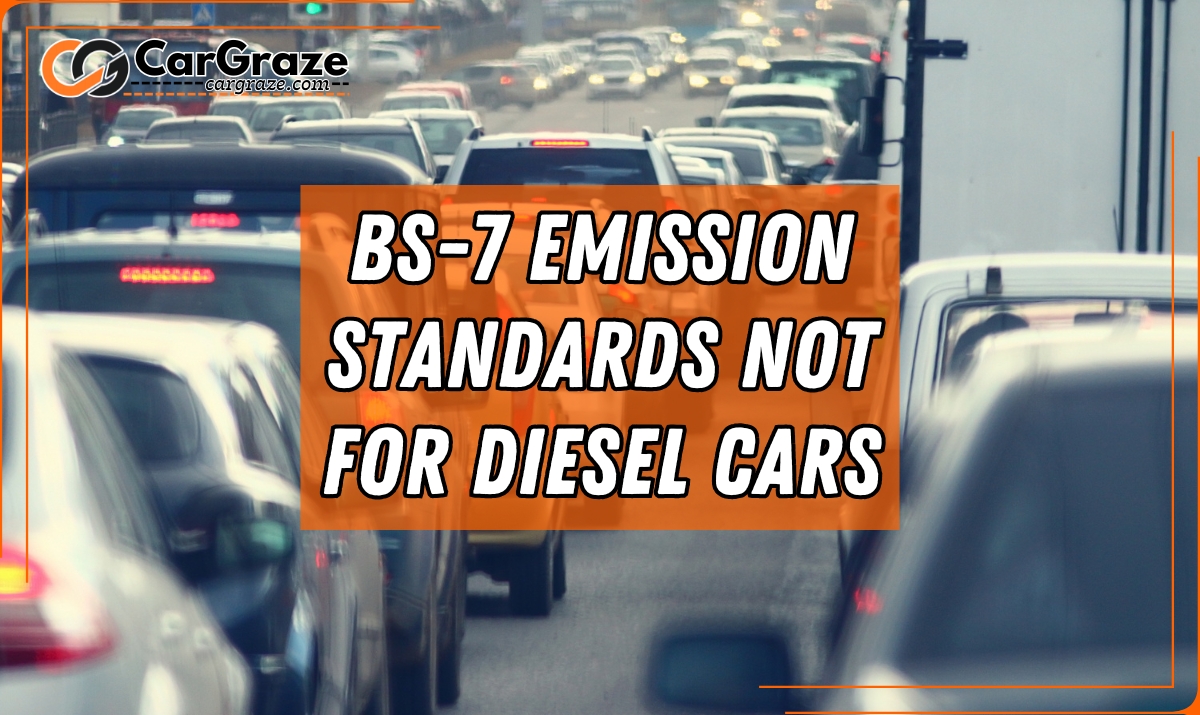
BS7 Emission Norms in India: What Car Buyers Need to Know
In a few years, India will introduce the BS7 emission standards, the strictest yet in the country's automotive history. But what does this mean for you as a car buyer? Will you pay more, or see your favorite models vanish from showrooms? Let’s dive into the world of BS7 and unpack what these changes mean for car lovers, environmentalists, and industry professionals alike.
What Are BS7 Emission Norms?
In simple terms, BS7 (Bharat Stage 7) is India’s next step in emission standards to control vehicle pollution. These standards will enforce stricter limits on harmful emissions like carbon monoxide, carbon dioxide, and nitrogen oxides. With BS7, the government aims to reduce air pollution by ensuring that new vehicles pollute far less than those on the road today.
Why Is BS7 a Big Deal?
BS7 will have a much bigger impact than previous standards, like BS4 or BS6, because it tightens the screws on vehicle emissions, particularly for diesel engines. For instance, diesel vehicles will now have to meet nitrogen oxide emission levels similar to those of petrol vehicles. This is a massive shift, especially for car makers, who’ll need to re-engineer engines and add new monitoring systems. And yes, these changes mean higher prices for you, the buyer.
Key Changes BS7 Will Bring
BS7 is about more than just reducing emissions. Here’s a breakdown of what’s new:
- Stricter Emission Levels: Expect a drastic cut in pollutants from cars. Diesel vehicles will face tougher standards, aligning closer to petrol engines in terms of nitrogen oxide emissions. This adjustment means some popular diesel models might no longer be affordable or available.
- Onboard Monitoring for Lifelong Compliance: With BS7, vehicles will be fitted with advanced onboard monitoring systems to ensure emission levels stay within limits over their entire lifespan. That means sensors and diagnostic systems constantly track pollution output, even as the car ages.
- Redesigned Catalytic Converters: One of the biggest changes with BS7 is that cars will need updated catalytic converters. Unlike previous models, these converters must be externally heated before starting the engine, ensuring they’re ready to reduce emissions from the get-go. However, this also adds to the manufacturing and purchase costs.
What’s in It for Car Buyers?
If you’re considering a new car, BS7 will bring both benefits and challenges. Here’s a quick look:
Advantages of BS7 for Car Buyers
- Reduced Pollution: The main goal of BS7 is to cut down on pollution, which means cleaner air and a better environment for everyone. The new standards will make sure cars emit far less harmful gases, especially nitrogen oxides.
- Better Fuel Efficiency: BS7-compliant cars are expected to offer improved fuel efficiency, which is good news for your wallet. While you may pay more upfront, a fuel-efficient vehicle could save you money over time.
- Global-Ready Vehicles: Indian car manufacturers will be able to sell BS7-compliant vehicles in international markets with strict emission standards, like Europe, boosting India’s automotive export potential.
Challenges of BS7 for Car Buyers
- Higher Car Prices: Unfortunately, the added technology and stricter standards mean car prices will rise. The costs of new engines, monitoring systems, and catalytic converters will likely be passed on to buyers.
- Diesel Vehicles on the Decline: Diesel fans take note - affordable diesel options may become scarce. Diesel cars under 10 lakh INR will likely disappear, and iconic diesel SUVs may no longer be available.
- Performance Trade-offs: BS7 focuses heavily on emissions and fuel efficiency, which might mean lower power output in cars. For performance enthusiasts, this could be a big downside.
- Increased Maintenance Costs: With more advanced technology and components to comply with BS7, maintenance costs are expected to rise. Regular servicing might also become more essential to keep everything functioning within emission limits.
How Will BS7 Affect Electric Vehicles?
BS7 isn’t just about petrol and diesel cars; it also touches on electric vehicles (EVs). For EV owners, BS7 brings some positive news. Battery manufacturers will need to guarantee battery longevity, helping ensure that EVs don’t need frequent replacements or recharges as they age. This is a win for EV enthusiasts as it could extend battery life and performance.
The Bottom Line: Is BS7 Good or Bad?
In short, BS7 is a win for the environment, making cars cleaner and more fuel-efficient. Electric vehicle owners and environmentally conscious buyers will appreciate the change. But for traditional car buyers, especially those fond of diesel engines or high-performance models, BS7 means paying more for possibly less power.
Final Thoughts
BS7 marks a significant shift in India’s automotive industry, bringing the country’s emission standards on par with some of the world’s strictest. So, whether you’re planning to buy a new car or you’re interested in the evolution of the auto industry, understanding BS7 is crucial. It might reshape car buying trends, with more buyers considering pre-owned options, switching to EVs, or holding onto their current cars a little longer.
The BS7 journey is just beginning, and it’s set to change the way we drive, buy, and think about cars in India. Keep an eye on these developments - they’re shaping the future of our roads and the air we breathe.
What do you think about BS7 Emission Norms? Drop your thoughts in the comments below!



Comments